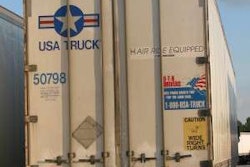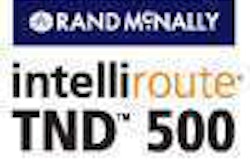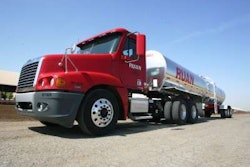An agreement between the American Trucking Associations and the Long Beach Harbor Commission could illegally reverse efforts to improve air quality in communities surrounding the Port of Long Beach, according to a lawsuit filed last week by the Natural Resources Defense Council and Sierra Club.
According to the two groups, the new agreement gives ATA authority to oversee future updates to the Clean Truck Program at the Port of Long Beach even if the port is acting to protect public health and safety. The arrangement requires the port to receive ATA’s approval before making changes to the program or risk ATA filing a lawsuit.
“You can’t cut the public out of the conversation when you’re talking about the air they breathe and the health consequences they face,” says David Pettit, director of NRDC’s Southern California Clean Air Program. “This deal puts the wolf in charge of the henhouse — with a likely result of dirtier air for local communities. Industry cannot be allowed to dictate clean air efforts and rollback the port’s clean air advancements.”
The groups say the private agreement, entered into on Oct. 19, violates Long Beach Municipal Code and state law, which require public involvement and an environmental review. The lawsuit calls for a legally-required state environmental study of the agreement that includes public comment before it can move forward.
“The problems posed to blighted communities and the environment are far greater than the simple issue of tailpipe emissions that this settlement tries to cover,” says Tom Politeo, spokesperson for the Sierra Club. “The superficial agreement is far more about a subsidy that buys shiny new trucks for the industry than of the reforms needed to establish environmental justice. It is protectionist to a floundering status quo at the cost of suffering residents, workers and the environment.”
According to NRDC and the Sierra Club, the Long Beach Harbor Commission has denied repeated requests to examine potentially adverse health impacts under the new agreement as required under the California Environmental Quality Act and has entered into the agreement without public approval by the Long Beach City Council.
“This agreement repeatedly violates the public’s trust,” Pettit says. “Long Beach residents deserve transparency and honesty that the port can easily provide if it simply complies with the law and completes a basic environmental assessment on the agreement.”
ATA says the lawsuit seeks to overturn its settlement with the port that ended litigation over the port’s truck concession plan. The Long Beach port settled the lawsuit after the U.S. District Court of Appeals declared the concession plan illegal.
“ATA cannot comment on the NRDC’s lawsuit itself, because we have not seen it,” says Clayton Boyce, ATA’s press secretary and vice president for public affairs. “But the legal issues that the NRDC raises in their press release have already been considered and rejected as baseless by the City of Long Beach. The press release also contains many inaccuracies that denigrate the port’s highly successful Clean Truck Program.”
ATA says its settlement with the port did not make any change that would reduce, let alone reverse, the port’s progress in cleaning the air. “What is cleaning the air is the progressive banning of older trucks,” ATA says in a statement released Monday, Jan. 4. “The settlement agreement with the ATA gives the Port of Long Beach everything it needs, and everything it wanted, to continue banning older trucks. The port has the control.” If the truck does not meet the requirements, the port will not let it in the gate, Boyce says.
ATA says the reduction of truck pollution by the trucking industry-supported Clean Truck Programs has come without banning small independent businesses from port trucking, something the Port of Los Angeles is attempting to do to benefit the Teamsters. ATA says NRDC and the Sierra Club want to force all U.S. ports to ban independent owner-operators in order to make all port drivers company employees who can be organized by the Teamsters. NRDC is lashing out in anger at the Port of Long Beach because it refused to ban owner-operators, ATA argues.












